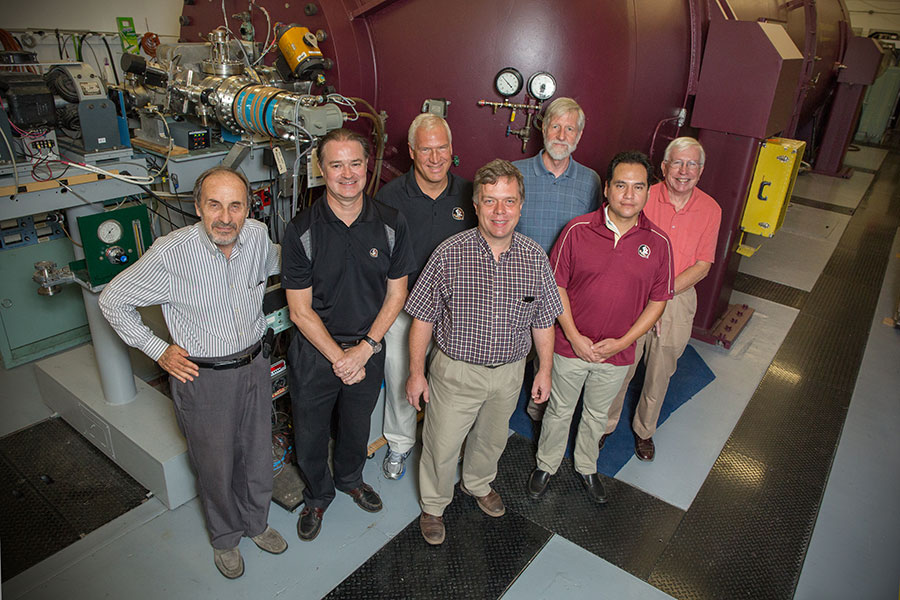
A team of Florida State University physicists will receive $1.7 million from the National Nuclear Security Administration over the next five years to help boost the nation’s nuclear science workforce.
Physics Professors Ingo Wiedenhoever, Paul Cottle, Mark Riley, Samuel Tabor, Assistant Professor Sergio Almaraz-Calderon and research faculty Anthony Frawley operate the John D. Fox Superconducting Linear Accelerator Laboratory. The FSU lab has been one of the nation’s leaders in educating nuclear scientists for more than 50 years, and this new funding will augment ongoing research efforts while also providing additional educational opportunities for both university and high school students.
“The NNSA funding will give the Fox Laboratory a tremendous opportunity to further expand the nation’s scientific workforce,” Wiedenhoever said. “It also reinforces how important FSU has been to the development of Florida’s scientific capacity for decades.”
This new funding from the NNSA is part of a larger $10 million project awarded to the Center for Excellence in Nuclear Training and University-based Research, a consortium of universities headquartered at Texas A&M University.
At FSU, most of the money will be used to support graduate students and postdoctoral fellows who are working on cutting-edge scientific research in its accelerator facility. It will specifically support their efforts to develop advanced detection systems used in nuclear physics experiments at the John D. Fox Laboratory. The lab conducts research on how elements are produced in stars and on the behavior of atomic nuclei.
The funding has an additional and rather novel education component as well.
The grant will fund a nuclear science summer camp for rising ninth-graders in the Bay County School District.
Teachers from the Bay County School District already collaborate with the FSU Department of Physics through the Future Physicists of Florida program. While the summer camp will introduce students to nuclear science careers, it will also involve science teachers in developing and teaching the camp. These teachers will then be able to bring their new knowledge of nuclear science — and nuclear science laboratory equipment purchased through the grant — to their classrooms during the school year.



